
Kawasaki's Nihon Minka-en
Josef DiermairThe Japan Open-Air Folk House Museum in Kawasaki is a rather quiet place that has a lot to offer to people in search of old wooden traditional Japanese houses.

Nihon Minka-en (日本民家園, also 'The Japan Open-Air Folk House Museum') is part of the Ikuta Ryokuchi Park in Kawasaki, Kanagawa. On display in the park is a collection of 20 traditional minka from various parts of Japan, especially thatched-roofed houses from eastern Japan. (Wikipedia)

The Japan Open-Air Folk House Museum in Kawasaki is a rather quiet place that has a lot to offer to people in search of old wooden traditional Japanese houses.
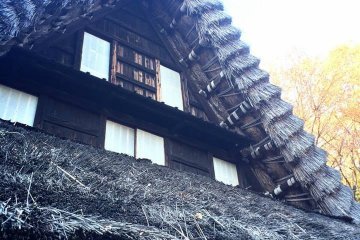
This splendid museum is located in Ikuta Ryokuchi Park in Kawasaki city, just outside Metropolitan Tokyo.
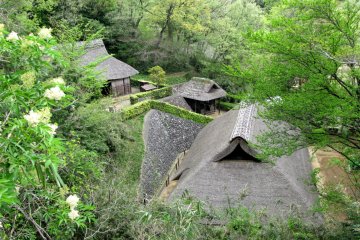
Nikon Minkaen is an exposition of historical houses collected from all over Japan, now settled in Kawasaki.
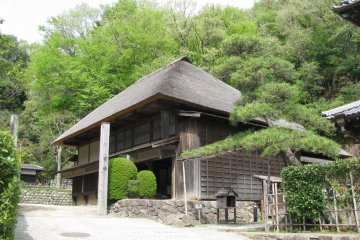
Nihon Minkaen is an open-air museum featuring a good collection of old houses from all over Japan. The houses reveal old construction techniques, materials and even household items.
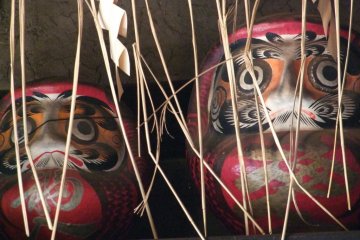
Kawasaki’s Minka-en is one of the most interesting places you are likely to visit here in Japan. This Folk House Museum has had a lot of thought and love put into it.
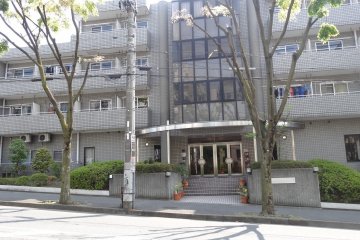
Social Residence Tama Plaza is a share house located in Shinishikawa, Aoba Ward in Kanagawa Prefecture. It is an 8-minute walk from Tama-Plaza Station, and it takes only 20 minutes on the Express train to Shibuya station on the Den-en-toshi line. The share house is conveniently located around various amenities such as a supermarket and a shopping centre.

Kanagawa prefecture is where you will find Solso Farm, a large and spacious nursery that upon further inspection has so much more to offer than just plants. Upon entering you will no doubt be surprised by all the little things you can find here. It is truly a luscious getaway hidden among the urban area surrounding it. [photo id='233838'] While it is true that Solso Farm specializes in selling all things related to gardening, it also serves as a quiet getaway to those who know about it. Their site features a map layout of the store, but I’ll cover them quickly for you. Inside you can find a small cafe and kitchen that serves fresh food and drinks created from seasonal ingredients. There is a library where you can relax and read a book while being surrounded by nature. If you have kids, bring them by and let them enjoy the play area that consists of different things that are sure to keep them entertained. There is even something for your little fur balls in this little garden oasis, a dog run area where they can get some exercise and attention. As you can see, there is a unique appeal to this nature getaway that is hidden among the cities. [photo id='233836'] One of Solso Farm's most popular features is its consultation service. With proper scheduling, Solso Farm can schedule a look at your own garden space, offering advice as to the best plants to grow and how to care for them. Of course, this experience will vary depending on the goals for your garden and location. Interviews can happen in person or via Zoom. Their website also features a link to their online store where you can find information on seasonal plants and products. However, much of the online store functions as your one stop shop for all your gardening needs. If you find that you don't have the time to stop by the store, why not check out what the store has on sale? Shipping is domestic to Japan and times for shipping vary depending on product choice. Currently, Solso Farm is preparing for a rush of customers sure to stop by this spring. For this reason, the shop is currently closed, an official date of reopening is to be announced. During normal operation you will find Solso Farm open on weekends and holidays. Along with this preparation comes some new renovations to the shop which will be sure to offer returning customers a new wave of experience. [photo id='233835'] Solso Farm prides themselves on being a huge green thumb. If you too are all about caring for our Earth or are just interested in all the beauty nature has to deliver, Solso Farm is for you. Enjoy a quiet weekend afternoon in a place sure to rejuvenate the soul. [photo id='233837']
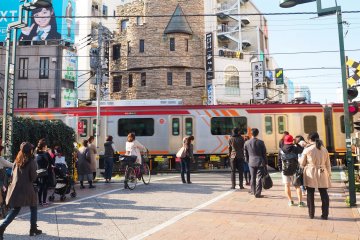
Jiyugaoka (自由が丘) is located in southern Meguro, Tokyo, and has often been considered as one of the most desirable places to live in Tokyo. It’s not hard to see why once you visit this charming area. Located at the junction of the Toyoko Line and the Oimachi Line, Jiyūgaoka is brimming with life and movement. This, in addition to its relatively sparse population, makes it an easygoing place to spend a day shopping and sightseeing. Translated as “freedom hill,” Jiyūgaoka is often called o-share, “trendy” or “fancy”, by its fellow Tokyoites. It came into its own as the bustling town it is today around the 1970s, after it grew quickly following World War II. Today, you’ll find boutiques, cafes, specialty stores, and restaurants galore dotting the easy to navigate streets. And with buses running to and from the station, it’s easy to get to where you need to be; there’s even an alternative fuel bus that runs on tempura oil! Festivals from January to May turn Jiyūgaoka into a lively spectacle of energy and activity: the Hantan-sai in January is held at Kumano Shrine and boasts a history of more than 800 years; the Cherry Blossom Festival the first April of every year lines Green Street with music and festivities; also in April and May is the Spring Festival, a sort of arts festival with well-known guests musicians; and in May, visit the Marie Claire Festival along the street of the same name, popular for lively music and chanson artists. One thing is for sure, this exciting stop is deceptive in its small size; you can find rich culture and history at its many shops, from shops boasting all handmade clothing to import kitchenware, from the beloved Peter Rabbit Garden Café by famed English author Beatrix Potter to the first Mont Blanc cake shop in Japan. There’s something fascinating hiding on every street of Jiyūgaoka.
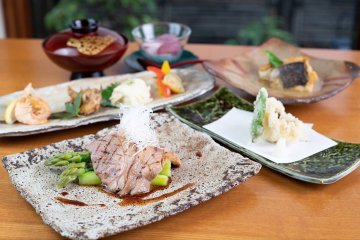
With organically grown buckwheat flour from Niigata Prefecture, Furaikyo has been offering superb homemade soba noodles since 2006. Their Kagoshima-kelp broth is beautifully complemented by seasonal produce with their dishes letting you truly taste the four seasons of Japan.
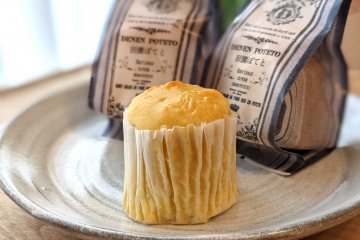
Located near Shin-Yurigaoka Station, den en poteto offers a calm, rustic interior space at its bakcstreet patisserie setting. They offer both a lunch menu, as well as cafe options across desserts, pastries and breads. Loved for over 40 years, their signature offering is their sweet and succulent 'den en potato' cake, made from local sweet potatoes and previously awarded Monde Selection for 8 consecutive years.
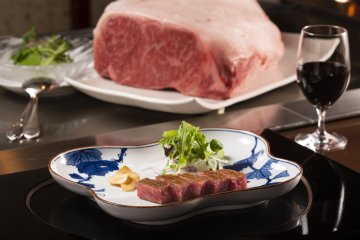
Azamino Ukai-tei's exterior harmoniously combines the beauty of French and Japanese architectural influences with modern art — an elegant scene that continues inside thanks to a refined Western interior that integrates the essence of Japanese design. The high-quality seasonal ingredients are prepared by Ukai-tei's skilled chefs to create a French-cuisine inspired menu using Japanese Black beef as a main. Every course is sure to stay in your memory long after the meal is finished.
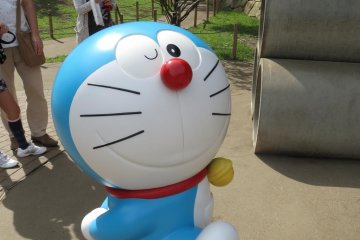
The Fujiko F Fujio Museum, also known as the Doraemon museum, is dedicated to the work of Fujiko Fujio.

Yomiuri Land is a Japanese theme park that first opened in 1964. It is located on a mountainside and features rides such as roller coasters and water slides. It houses the Yomiuri Giants Stadium, one of the training fields for the Yomiuri Giants baseball team, and was the main training ground before the Tokyo Dome was completed. It is operated by the Yomiuri Group, the parent company of the Yomiuri Shimbun media conglomerate. A bathhouse was added to attract more seniors. The Yomiuri Land is also host to the largest illumination in the Kanto region, "Jewellumination". Popular night-only shows and attractions include some of the largest fountain shows in the country and a Ferris wheel with panoramic views of the cityscape at night.

Hana Biyori (HANA・BIYORI), nestled next to the Yomiuriland amusement park in Inagi City, Tokyo, is an innovative flower park that offers a refreshing blend of nature and modern attractions. This park features a variety of seasonal gardens and floral displays, from vibrant cherry blossoms in spring to the rich colors of chrysanthemums in the fall. One of Hana Biyori’s standout features is its focus on sustainable practices, including natural irrigation systems and a variety of locally sourced products. The park’s dining area showcases handcrafted furniture made by wood salvaged from trees damaged by typhoons at Yomiuriland facilities. It also exclusively uses well water from the Tama Hills to nourish its plants, streams, and waterfalls. In addition to the breathtaking plant life, Hana Biyori offers workshops, seasonal events, and interactive art installations. Whether you’re looking to connect with nature, learn about sustainable gardening, or simply enjoy the beauty of seasonal flowers, HANA・BIYORI offers an experience that is both educational and visually captivating.